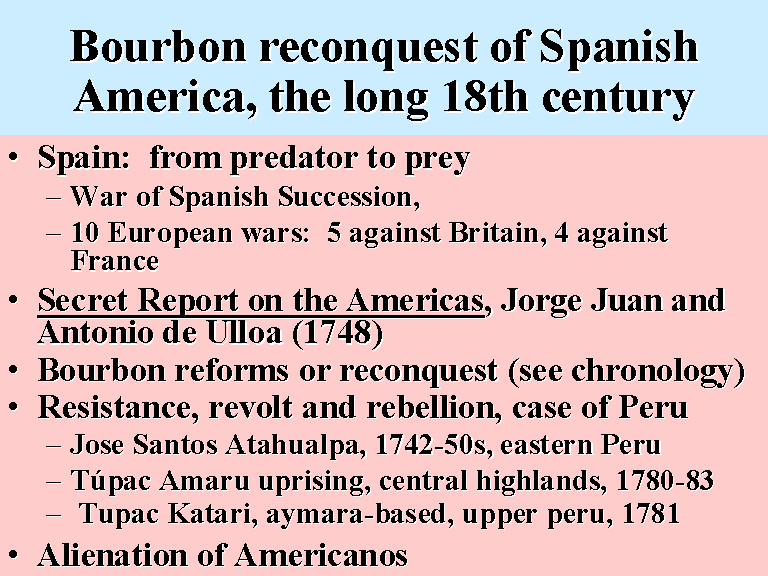
|
Bourbon reconquest of Spanish America, the long 18th century
Spain: from predator to prey
- War of Spanish Succession,
- 10 European wars: 5 against Britain, 4 against France
Secret Report on the Americas, Jorge Juan and Antonio de Ulloa (1748)
Bourbon reforms or reconquest (see chronology)
Resistance, revolt and rebellion, case of Peru
- Jose Santos Atahualpa, 1742-50s, eastern Peru
- Túpac Amaru uprising, central highlands, 1780-83
- Tupac Katari, aymara-based, upper peru, 1781
|
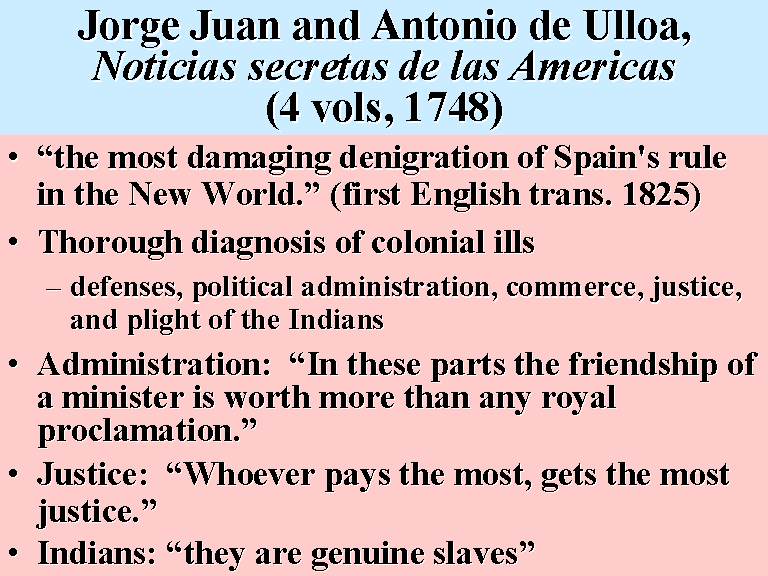 |
Jorge Juan and Antonio de Ulloa, Noticias secretas de las Americas �(4 vols, 1748)
“the most damaging denigration of Spain's rule in the New World.” (first English trans. 1825)
Thorough diagnosis of colonial ills
- defenses, political administration, commerce, justice, and plight of the Indians
Administration: “In these parts the friendship of a minister is worth more than any royal proclamation.”
Justice: “Whoever pays the most, gets the most justice.”
Indians: “they are genuine slaves”
|
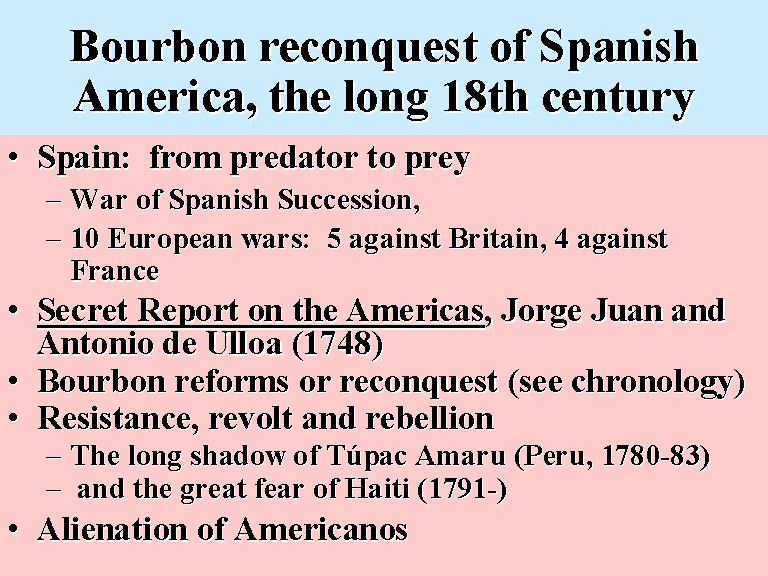 |
Bourbon reconquest of Spanish America, the long 18th century
Spain: from predator to prey
- War of Spanish Succession,
- 10 European wars: 5 against Britain, 4 against France
Secret Report on the Americas, Jorge Juan and Antonio de Ulloa (1748)
Bourbon reforms or reconquest (see chronology)
Resistance, revolt and rebellion
- The long shadow of Túpac Amaru (Peru, 1780-83)
- and the great fear of Haiti (1791-)
|
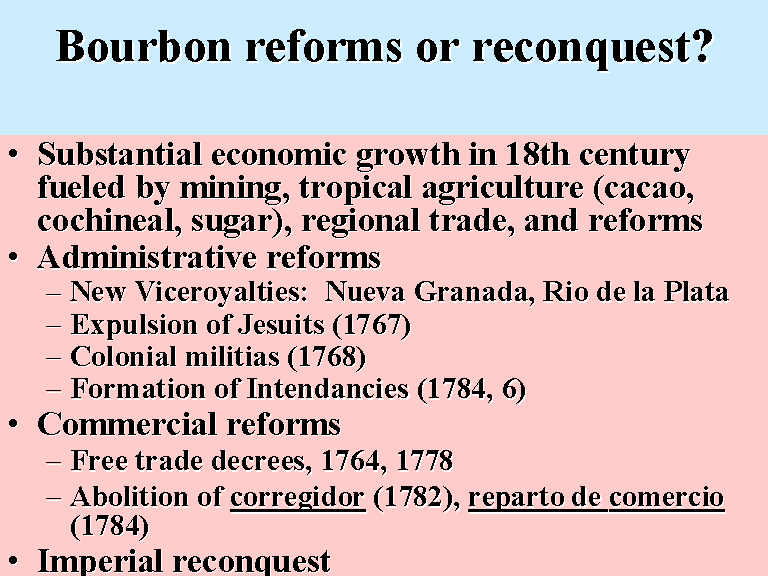 |
Bourbon reforms or reconquest?�
Substantial economic growth in 18th century fueled by mining, tropical agriculture (cacao, cochineal, sugar), regional trade, and reforms
Administrative reforms
- New Viceroyalties: Nueva Granada, Rio de la Plata
- Expulsion of Jesuits (1767)
- Colonial militias (1768)
- Formation of Intendancies (1784, 6)
Commercial reforms
- Free trade decrees, 1764, 1778
- Abolition of corregidor (1782), reparto de comercio (1784)
|
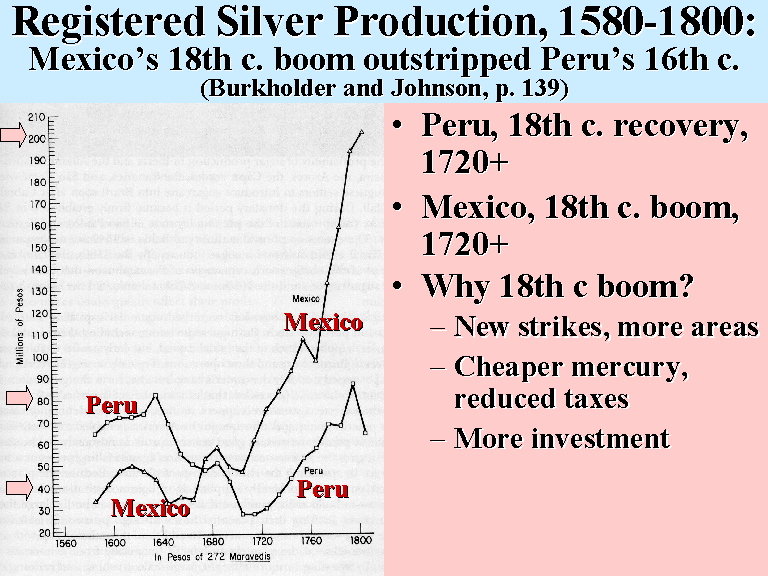 |
Registered Silver Production, 1580-1800: Mexico’s 18th c. boom outstripped Peru’s 16th c.�(Burkholder and Johnson, p. 139)
Peru, 18th c. recovery, 1720+
Mexico, 18th c. boom, 1720+
Why 18th c boom?
- New strikes, more areas
- Cheaper mercury, reduced taxes
- More investment
|
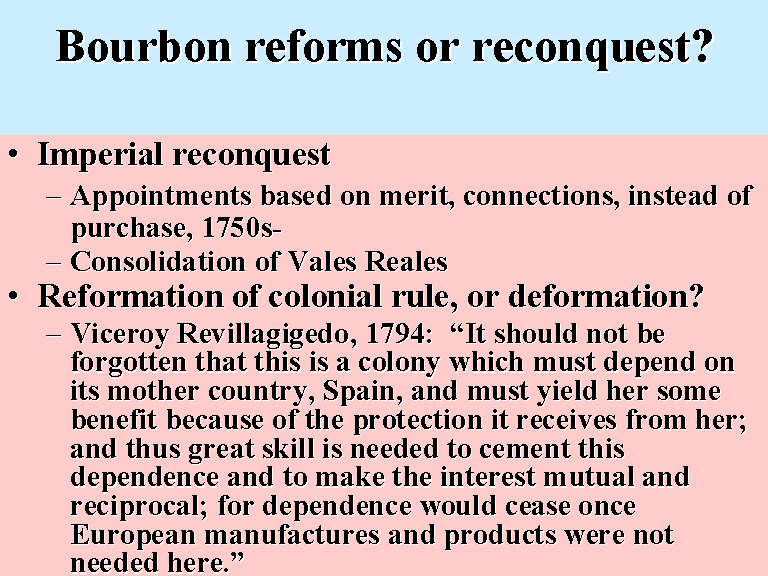 |
Bourbon reforms or reconquest?�
Imperial reconquest
- Appointments based on merit, connections, instead of purchase, 1750s-
- Consolidation of Vales Reales
Reformation of colonial rule, or deformation?
- Viceroy Revillagigedo, 1794: “It should not be forgotten that this is a colony which must depend on its mother country, Spain, and must yield her some benefit because of the protection it receives from her; and thus great skill is needed to cement th
is dependence and to make the interest mutual and reciprocal; for dependence would cease once European manufactures and products were not needed here.”
|
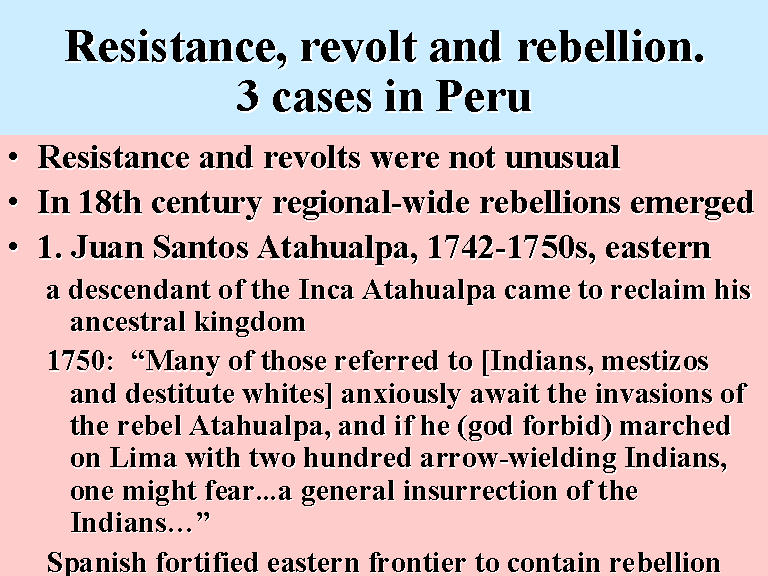 |
Resistance, revolt and rebellion.�3 cases in Peru
Resistance and revolts were not unusual
In 18th century regional-wide rebellions emerged
1. Juan Santos Atahualpa, 1742-1750s, eastern
a descendant of the Inca Atahualpa came to reclaim his ancestral kingdom
1750: “Many of those referred to [Indians, mestizos and destitute whites] anxiously await the invasions of the rebel Atahualpa, and if he (god forbid) marched on Lima with two hundred arrow-wielding Indians, one might fear...a general insurrectio
n of the Indians…”
Spanish fortified eastern frontier to contain rebellion
|
 |
Rebellions in Upper Peru, 1742-1783�1. J.S. Atahualpa�2. Túpac Amaru�3. Túpac Katari
|
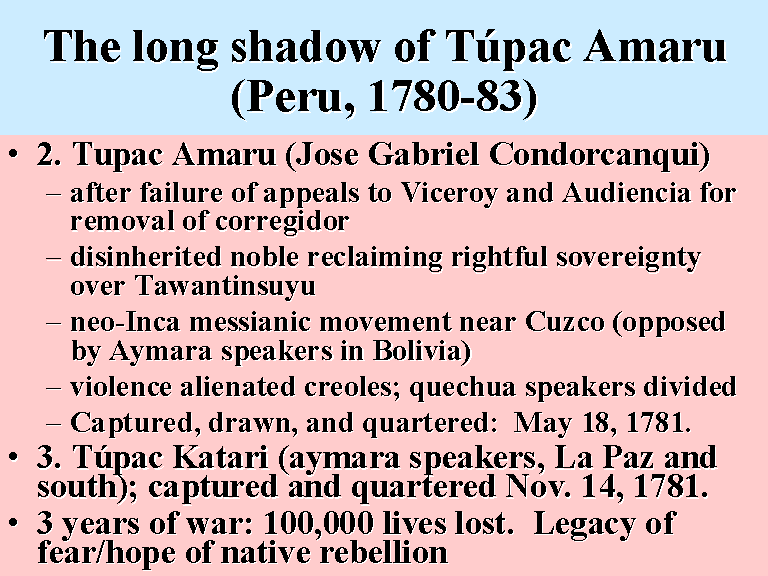 |
The long shadow of Túpac Amaru (Peru, 1780-83)
2. Tupac Amaru (Jose Gabriel Condorcanqui)
- after failure of appeals to Viceroy and Audiencia for removal of corregidor
- disinherited noble reclaiming rightful sovereignty over Tawantinsuyu
- neo-Inca messianic movement near Cuzco (opposed by Aymara speakers in Bolivia)
- violence alienated creoles; quechua speakers divided
- Captured, drawn, and quartered: May 18, 1781.
3. Túpac Katari (aymara speakers, La Paz and south); captured and quartered Nov. 14, 1781.
3 years of war: 100,000 lives lost. Legacy of fear/hope of native rebellion
|
 |
End
|









